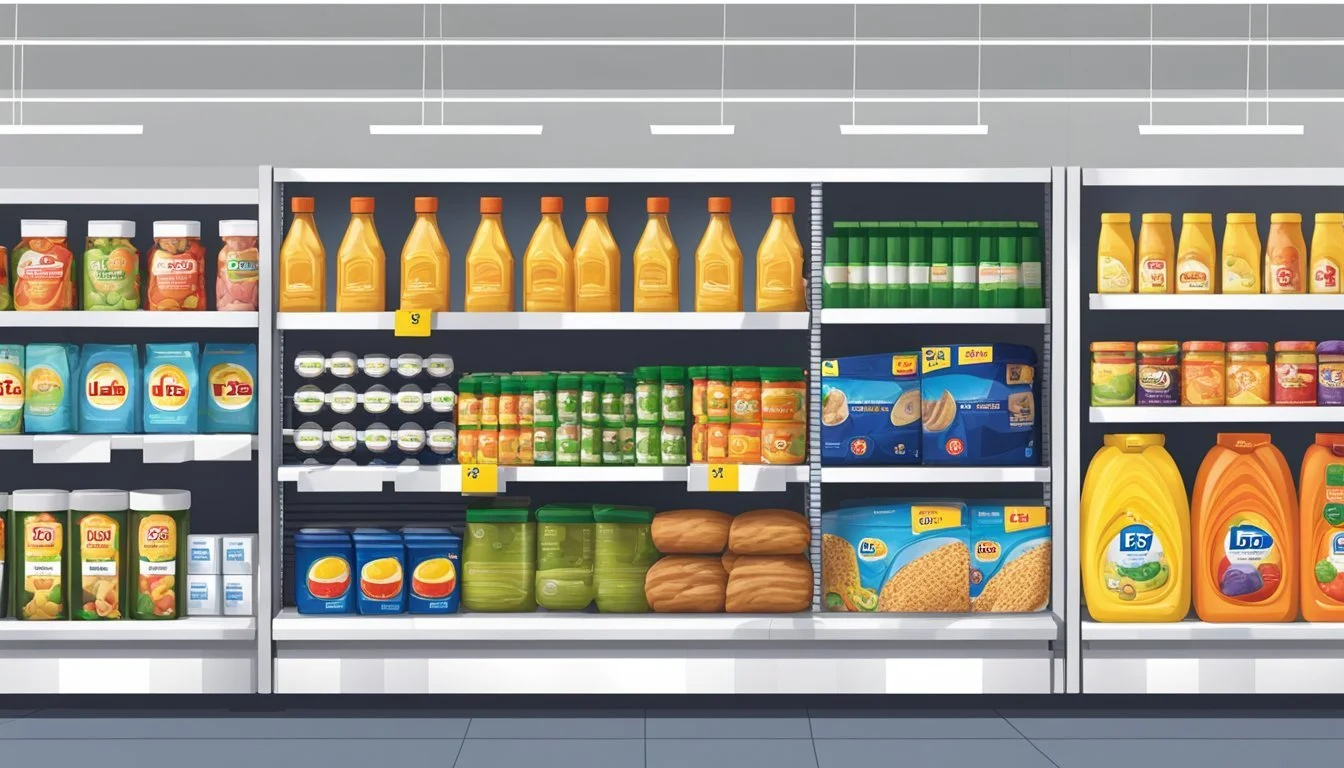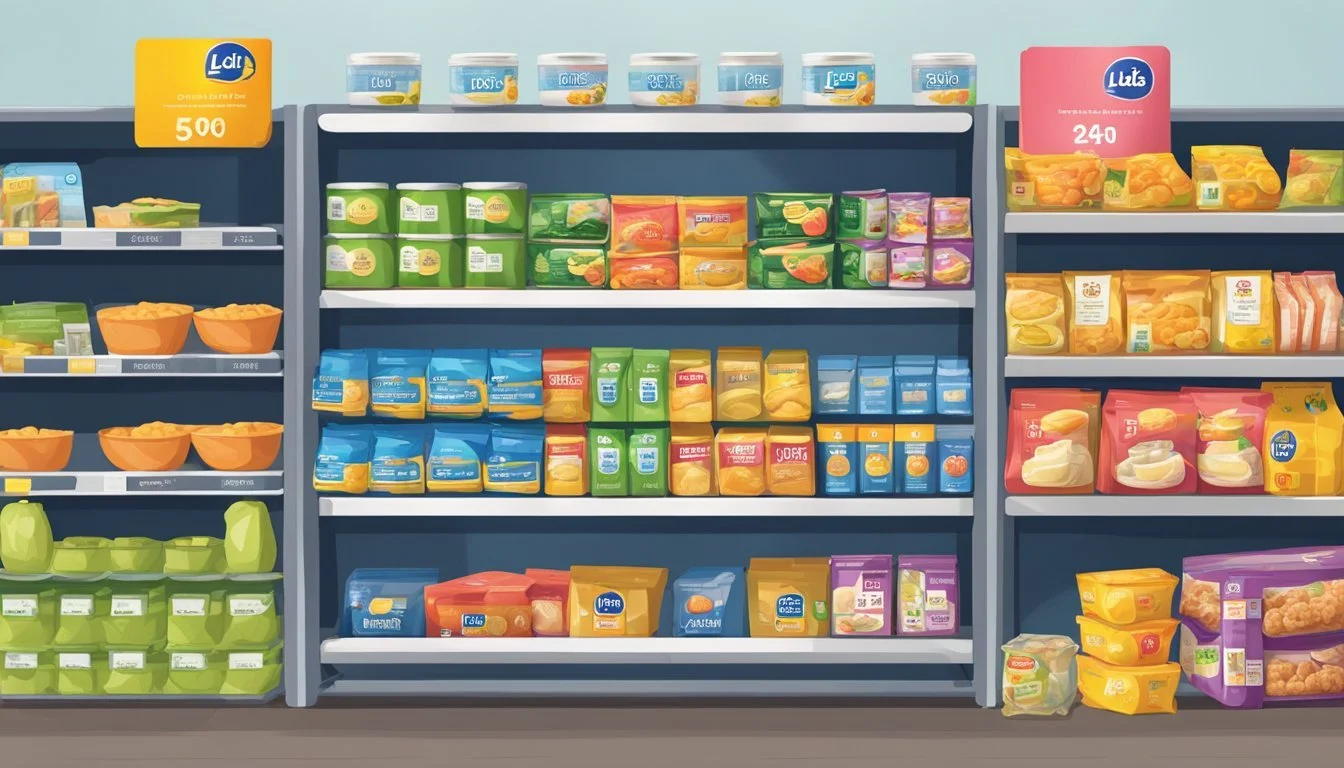Is Lidl Cheaper Than BJ's?
Analyzing Grocery Pricing Comparisons
Part of Our Grocery Store Guide with Details on Lidl Prices and BJ's Wholesale Club Prices
When comparing grocery shopping options, cost and value are often paramount in the minds of consumers. Lidl and BJ's Wholesale Club represent two distinct models within the retail space, catering to budget-conscious shoppers. Lidl, with its origins in Germany, has made significant inroads internationally as a supermarket, known for its competitive prices, especially on basic staples and private-label products. Without the need for a membership fee, Lidl opens its doors to cost-sensitive customers looking for regular low prices on their shopping trips.
BJ's Wholesale Club, on the other hand, operates on a membership model with fees starting at $55 annually for its Inner Circle Membership, and a higher tier known as BJ's Perks Rewards Membership priced around $110 per year, promising additional benefits. These fees, which could potentially be offset by the savings on bulk purchases, cater to customers looking for large quantities and value over time. With differing business models, the direct price comparison may vary based on the shopping patterns, product selections, and quantity needs of the consumer.
In assessing which store provides better value, one must consider various factors, including the membership costs at BJ's, and whether the volumes of products purchased justify those initial fees. Lidl's appeal lies in its ability to provide lower costs without added membership fees, positioning it as an accessible option for those seeking immediate savings. Understanding the intricacies of each store's pricing strategy requires looking at the bigger picture of a shopper's spending habits and preferences.
Overview of Grocery Retailers
The grocery landscape is shaped by a variety of retailer types, each with their own approach to offering value, quality, and convenience. This section examines key distinctions among supermarkets, warehouse clubs, and discounters, their respective product offerings, and how recent global events have influenced shopping habits.
Supermarket Chains Comparison
Supermarkets such as Walmart, Target, Aldi, Giant, and Food Lion operate networks reaching across numerous locations. They typically offer a wide range of products, including meat, produce, dairy, and bakery items, balancing low prices with convenience. Discounters, which include Aldi and Lidl, focus on value and efficiency with smaller stores.
Walmart and Target have extensive national reach, providing a large variety of national-brand products alongside their private-label brands.
Aldi and Lidl are recognized for keeping costs low, while stores like Whole Foods specialize in organic and high-quality items.
Warehouse Clubs vs. Discount Supermarkets
Warehouse clubs like Costco, Sam's Club, and BJ's Wholesale Club target consumers looking for savings by buying in bulk. Their private-label brands, such as Kirkland Signature, Wellsley Farms, and Berkley Jensen, offer significant value.
Warehouse clubs require membership and typically have larger package sizes compared to discount supermarkets.
Discount supermarkets, such as Lidl, provide economies by limiting SKUs and focusing on their own private-label brands.
National Brands and Private Labels
There's a continuous interaction between national brands and private labels within grocery retailers. While national brands have longstanding consumer trust, private-label brands have gained a reputation for quality and value.
Kirkland Signature (Costco) and Wellsley Farms (BJ's Wholesale Club) are examples where private-label brands command loyalty.
Supermarkets carry an assortment of brands, offering consumers a choice between national brands and store brands for categories like cheese, meat, and dairy.
Impact of the Pandemic on Grocery Shopping
The pandemic caused notable shifts in grocery shopping behavior, with concerns about inflation, food prices, and potential recession influencing customer decisions.
Consumers have turned to discounters and bulk-buying to manage increased food prices.
The trend of stocking up on essentials during the pandemic heightened the appeal of warehouse clubs and their bulk offerings.
Through this examination, we see that factors like store format, product range, and pricing strategies are central to understanding the differences and consumer preferences among supermarket chains, discount supermarkets, and warehouse clubs.
Price Comparison Analysis
In this section, we present a detailed comparison of pricing between Lidl and BJ's, based on selected criteria, specific product categories, and the pricing of specialized and bulk items.
Comparison Criteria and Methodology
The methodology for this price comparison analysis includes a direct comparison of prices from Lidl and BJ's across various product categories. The analysis focuses on unit pricing of individual items to ensure a fair comparison. In instances where BJ's sells items in bulk, prices are adjusted to match equivalent quantities sold in Lidl for comparability. This review leverages recent surveys and data from credible financial reports to maintain accuracy and relevance.
Specific Product Categories
When comparing prices across specific product categories such as fresh produce, dairy, and meat, it has been noted that Lidl often offers competitive low prices. For example:
Product Category Lidl Price BJ's Price Fresh Produce Low Moderate Dairy Products Low Moderate Meat Low Moderate
Lidl typically presents lower cost options in dairy items like milk, cheese, and yogurt, as well as for standard meats including ground beef and ham.
Specialized and Bulk Items
BJ's, known for its bulk products, often provides economies of scale, particularly for large households or businesses. However, Lidl's pricing structure has consistently been shown to be more economical, especially for shoppers purchasing standard-sized quantities. While BJ's may offer lower prices on bulk items, such as large quantities of eggs or butter, Lidl's pricing for smaller or individual-sized purchases tends to be more advantageous for consumers not looking to buy in bulk.
In summary, consumers looking for everyday groceries, including baked goods, those doing routine shopping, or those making smaller, more frequent purchases may find Lidl a more cost-effective option than BJ's.
Quality and Variety of Goods
Lidl and BJ's Wholesale Club both provide a wide array of products, with a significant focus on the quality and variety of their food items. Consumers often regard freshness, quality, and variety as pivotal factors in their shopping decisions.
Freshness and Quality of Food
Lidl places a strong emphasis on the quality of their food items, with a robust selection that includes their own-label products. Their store brand offerings often rival national brands in quality but are positioned at a lower price point. Customers can typically find a range of dairy and bakery items that are freshly stocked and frequently praised for their quality. Meanwhile, BJ's tends to offer a mix of its private label, Berkley Jensen, and national brands, ensuring quality across a diverse product range.
Selection of Meat and Produce
When it comes to meat and produce, BJ's offers an extensive selection. Their meat department is known to feature a butcher on-site, providing a variety of meats including options for organic and high-quality cuts. Lidl also offers fresh meat and produce, but the selection might be narrower in comparison, with a strong focus on fresh produce and competitive pricing. Both stores have received positive feedback concerning the freshness of their fruits and vegetables, with BJ's offering bulk options and Lidl providing a carefully curated selection that emphasizes quality and value.
Shopping Experience and Convenience
When comparing Lidl to BJ's Wholesale Club, key aspects such as store locations, service options, and the overall shopping experience need to be carefully examined to determine which retailer offers more convenience.
Store Locations and Accessibility
Lidl operates compact stores known for their easy-to-navigate layout. Their presence is growing in the United States, with stores designed to be readily accessible for quick shopping trips. BJ's, on the other hand, offers larger, warehouse-style locations that are relatively fewer and might be less conveniently located than Lidl's more numerous outlets.
Service Options
Both Lidl and BJ's Wholesale Club cater to a range of customer service options. Lidl does not require a membership, allowing customers to shop freely. BJ's, in contrast, operates on a membership model, limiting access to its deals for members only. However, BJ's offers a wide variety of merchandise, including bulk-sized products and a broader selection of meat and branded items.
Online Shopping and In-store Experience
In the digital sphere, online shopping has become increasingly important. Lidl offers an efficient in-store experience but has limited online shopping options with no delivery service. BJ's excels with comprehensive online shopping services, including delivery and curbside pickup, catering to the needs of shoppers who prefer shopping remotely. This stands in contrast to Lidl, where the focus remains on the physical in-store experience.
Both retailers provide different conveniences based on customer preferences. Lidl promotes ease and speed with its store design, while BJ's provides diverse service options, catering to both in-person and online shoppers.
Membership and Additional Benefits
Choosing the right store for one's shopping needs balances a consideration of membership costs with the benefits each store provides, notably in terms of discounts and exclusive access.
Membership Programs
BJ's Wholesale Club offers two levels of membership. The Inner Circle Membership comes with an annual fee of $55. For shoppers seeking additional perks, the BJ's Perks Rewards Membership costs about $110 annually and includes benefits like 2 percent cash back and additional travel savings. In contrast, Lidl operates without a membership program, eliminating membership fees for its customers.
Costco and Sam's Club are comparable competitors that also feature membership models. Costco's annual membership fees start at around $60 for the basic membership, known as the Gold Star, and $120 for the Executive Membership, which includes an annual 2 percent reward. Sam's Club membership costs roughly $45 annually for the Club Membership, with an option to upgrade to the Plus Membership for around $100, offering extra services like early shopping hours and cash rewards.
Coupons and Discounts
BJ's is unique in that it accepts both its own coupons and manufacturer coupons, doubling opportunities for savings. They often extend promotional discounts on membership fees, especially for new members.
Lidl, while not offering a traditional membership program, frequently provides discounts on products through in-store promotions. Shoppers can also take advantage of digital coupons accessible through Lidl's mobile app.
Stores like Costco and Sam's Club engage their members with exclusive deals and instant savings on a variety of items. Sam's Club members can utilize Sam's Club Instant Savings program, while Costco's members are privy to warehouse savings and coupon books offering limited-time deals.
Consumer Perception and Brand Loyalty
In the landscape of retail, consumer perception and brand loyalty significantly impact a store's success. Lidl, as a German-based discounter, is often compared to BJ's in terms of price, but there is more to explore behind mere numbers.
Satisfaction and Trust
A survey could reveal that shoppers prioritize more than just low prices. They seek confidence in the quality of products and the value they receive. Lidl has capitalized on this by fostering a brand loyalty that rivals even that of Trader Joe's. The key to Lidl's success might lie in its ability to merge cost-effectiveness with quality, influencing customer satisfaction and trust.
Cult Following of Discount Chains
Aldi and Lidl have cultivated a cult following similar to that of alt-grocers like Trader Joe's. This following is grounded in a belief that these German-based discounters deliver not just affordability, but also quality. Shoppers' confidence in these brands is underpinned by their consistently positive experiences, leading to a robust brand loyalty. This loyalty extends beyond price points and into the perception of value across the spectrum of products offered.







